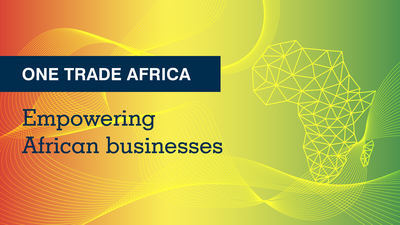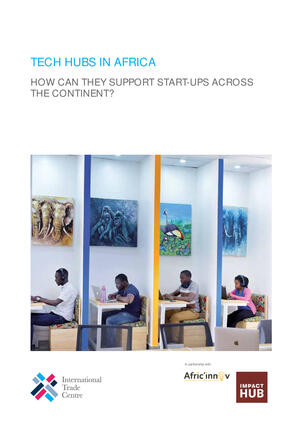New African tech hubs report showcases support for start-ups across the continent (en)
Technology hubs across Africa are creating a snowball effect that underpins the continent's digital transformation. Their support to start-ups contributes to entrepreneurial ecosystems. But tech hubs struggle to earn revenue and become financially sustainable, especially since the breakout of the pandemic.
The International Trade Centre (ITC) has expanded on a report published last year that showed how hubs in western Africa - and governments seeking to assist them - could tackle these challenges. This new edition includes additional research and insights from across Africa.
Supporting Start-Ups: Tech Hubs in Africa examines what hubs do, why they emerge and how they make an impact. It also looks at how hubs can ensure their own financial viability so they can provide sustainable support to African entrepreneurs, which will be particularly important in the post-Covid19 recovery phase.
The report is based on interviews with 39 hubs in 21 African countries. These tech hub leaders share best practices on their operations and business models. The report illustrates how hub practitioners view their ability to help early-stage technology innovators thrive and build networks with other like-minded individuals and enterprises.
Entrepreneurship - particularly tech-enabled, high-growth entrepreneurship - is often cited as a key to African economic growth and development.
'The study provides other hubs and ecosystem leaders with insights on how to better design their own business models and overcome challenges to financial sustainability coming out of lockdown,' said Ninon Duval, executive manager of Bond'Innov, one of the research partners for the report.
'We are at the heart of an interconnected network of investors, public, private, development, entrepreneurs and academia working to deepen the application of technology in solving challenges or driving social benefit, which are even more important today than ever before,' added CK Japheth, who founded Ugandan hub Innovation Village.
Hubs must be flexible
Keeping this network relevant often requires adaptability. For instance, Concree, Senegal's first virtual incubator, started as an online platform to connect entrepreneurs with cofounders and mentor them, a convenient feature in times of social distancing. The hub later added resources to help entrepreneurs work on their business models and find funding, says Babacar Birane, Concree's chief executive.
Community is a central element for the Impact Hub Network, says Growth Lead Beate Weinzinger. 'We are home to the innovators, changemakers and the entrepreneurs who are creating tangible solutions to the world's most pressing issues,' she said. 'This is achieved by building ecosystems to drive collaboration and entrepreneurial innovation around the global Sustainable Development Goals through our locally rooted Impact Hubs, as well as partners and allied networks.'
'Useful insights' for hubs and policymakers
The report supplements research showing that hubs can improve the survival rate of start-ups, which usher in disruptive business models and innovation 'made in Africa, for Africa'.
It provides 'useful insights and advice to tech hub founders and managers, as well as to government officials looking for efficient, effective ways to invest in trade and investment support organizations of a new kind, to the benefit of their entrepreneurial ecosystems', said Dorothy Tembo, Executive Director a.i. of the International Trade Centre.
Organizations that support hubs need to 'play the long game', joining forces when possible and having flexible expectations, the report says.



































